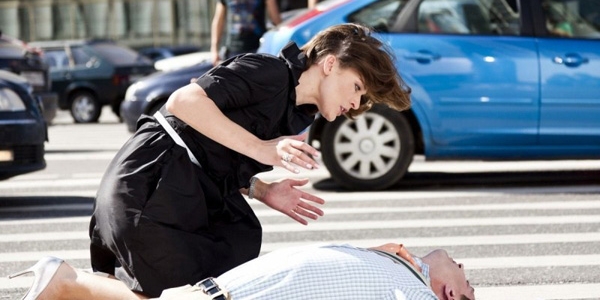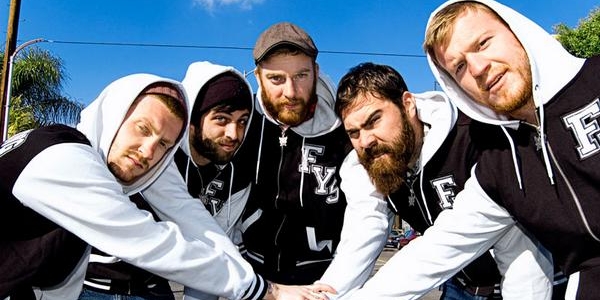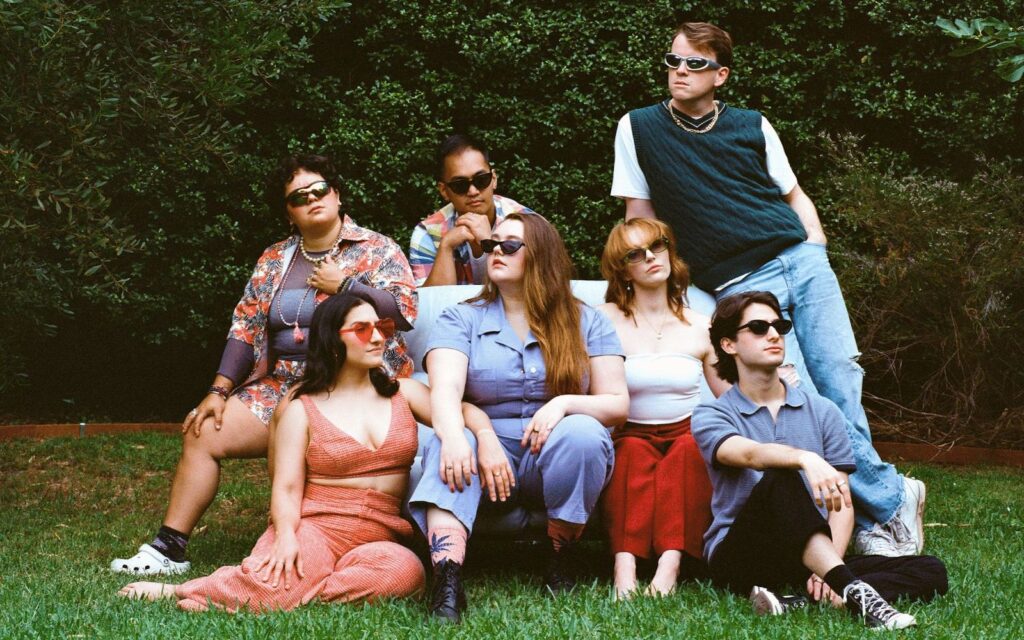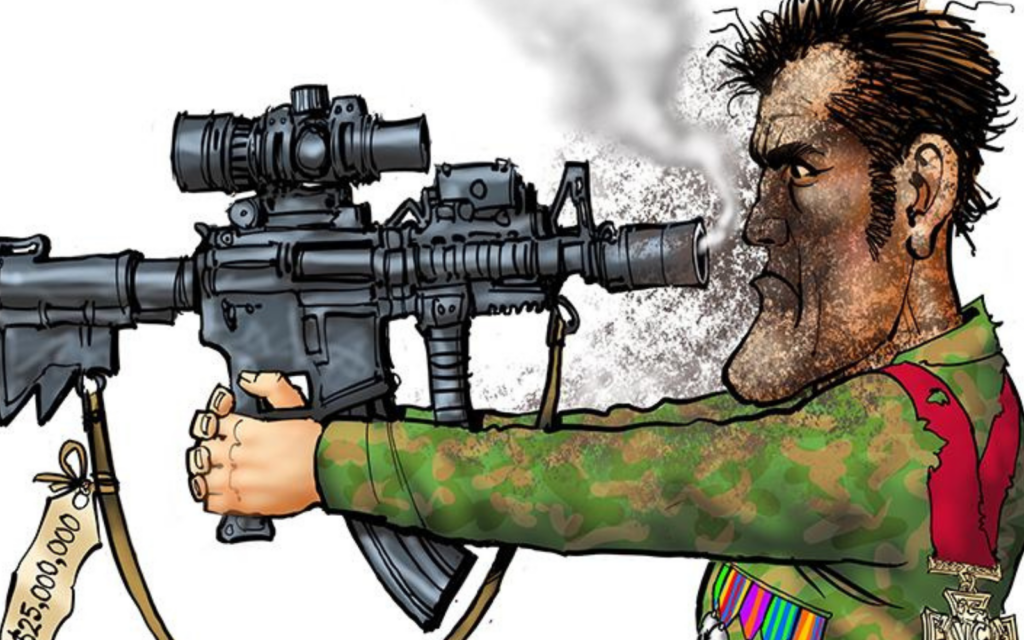“The Russian film industry is actually in quite a good state,” Maksymow acknowledges. “The Russian film industry was predicting a bad period after the last global financial crisis at the end of 2009. However, I don’t think it really affected the quality and the quantity of films that Russia produced. In fact they had an increase in the number of films they made in 2010/2011, and I believe that the quality of the films has not suffered at all.”
The quality and diversity of films is evident from the strong lineup this year. The festival showcases 15 of the newest and strongest films from Russia. “What we try to do is select one or two films from each genre that we believe represents the best comedy or the best action film over the past 12 months.” Maksymow says when explaining the process through which he and his selection committee chose the films. “By that sort of process we try to narrow it down to the best 15 or 16 films. And we try to cover all genres, so everyone gets a chance to see a film they might like.”
This year they have also programmed fewer films as a way of offering audiences far more flexibility and opportunity to see the movies on offer. “We believe that last year the program go a bit lost with viewers,” he elaborates, “and we tried to screen too many. A lot of the films only screened once, which didn’t give people an opportunity to see it if they weren’t able to make it to a particular session. There wasn’t a repeat screening. Whereas this year all of the main films are repeated at least once, so it gives people an opportunity to see the program.”
Timur Bekhmambetov is probably best known to western audiences for his visually spectacular Night Watch and its sequel Day Watch, but he also works on big budget Hollywood action films like Wanted. But he still returns home to make movies in Russia, and there are two of his films screening as part of the festival. Six Degrees Of Celebration is one, and Lucky Trouble is another.
Bekhmambetov produced the comedy Lucky Trouble, and he was able to lure Milla Jovovich (from the Resident Evil series, etc) from Hollywood to appear in this Russian film. This is an enjoyable film about a man on his way to Moscow to get married, who gets sidetracked, and becomes stuck coaching a soccer team in a small village on the outskirts. Bekhmambetov was also one of six directors involved in Six Degrees of Celebration, which has a similar premise to Six Degrees Of Separation, a film that Donald Sutherland starred in about 10 years ago. This film is based on the premise that one person has to pass on a message to another in order to fulfil their dream. It’s actually six short stories that all mingle into one by the end of the film.
A major focus of the Festival this year is the co-production retrospective, which has been developed with the assistance of Mosfilm and Lenin Film Studios, in Russia. The retrospective has also screened at the Tokyo Film Festival and in New York. “We actually believe it will appeal to audiences in Australia,” Maksymow adds, “because they actually get to see Sean Connery and Peter Finch in a Russian film, the spectacular 1972 drama The Red Tent.”
Also as part of this retrospective, Italian actor Giancarlo Giannini appears in Life Is Beautiful, an Italian/Russian co-production about a man falsely accused of conspiring against the state and imprisoned. Malcolm McDowell stars in Karen Shakhnazarov’s Assassin Of The Tsar, which picked up an award at the 1991 Cannes Film Festival. “That’s one to watch,” continues Maksymow. “That’s part of what we’re trying to achieve with the Russian Film Festival. We’re trying to showcase not only the new films, but trying to resurrect the old films that people either haven’t had an opportunity to see either because they haven’t been released in Australia. Or it’s been so long ago that it’s time to see a classic again.”
Also screening during the retrospective is the 1983 drama Station For Two, which stars the late Lyudmilla Gurchenko, one of the biggest stars of the Russian film industry, who passed away earlier this year. “She would be without doubt the biggest actress who started her career in the 50s,” elaborates Maksymow. “She made something like 50-odd Soviet films, but she also made the transition into Russian films as soon as the Soviet Union collapsed. She made about five or six films in Russia as well. She has a huge collection of work behind her. She probably had the equivalent of an Elizabeth Taylor status in Soviet and present day Russia, so it was only a fitting tribute that we selected Station For Two, which we believe to be her best role.”
Station For Two also features Nikita Mikhalkov, who is best known for his powerful Oscar winning film Burnt By The Sun.
This year the Festival is screening different films in different cities for their opening night. This is a deliberate decision by the programmers. “We choose two or three films which we believe fit the opening night theme, and we select the films on that basis. They’re all premiers for that particular city. The films we do choose for opening night are, we believe, the stand out films in the festival and so it’s always nice to open with a strong film.”
The opening night film in Melbourne is The Edge, which is a really good, strong example of new Russian cinema. The drama is set at the end of World War II in a work camp in Siberia. Ignat (Vladimir Mashkov) is an engineer who restores a ruined German steam train to working condition. But the film also explores the conditions and tensions within the camp that are exacerbated when Ignat brings German refugee Elza home with him.
Opening the festival in Sydney is Andrey Zyvagintsex’s drama Elena, which won the Une Certain Regarde award at Cannes this year, and which also screened at MIFF recently. Elena is an interesting story about a married couple, who have actually been married for about 12 years. Their marriage is not very strong in that respect, and one day Elena approaches her husband to see if he can help her financially with her son from a previous marriage, and that makes their troubled relationship even more tense. It gives you a sense that as soon as couples start discussing money or financial matters it always takes a turn for the worse.
There are also two animated 3D films screening during the festival. Kukuracha is really suitable for the young kids. It’s an animated feature about a group of animals that infest a computer and work as viruses inside this computer system. “It’s a great opportunity for families to introduce their kids to foreign film,” enthuses Maksymow. “Even if you don’t speak Russian it’s a good opportunity to take your kids along and introduce them to a foreign film.”
Also screening is the broadly appealing Nutcracker, which is based on the acclaimed ballet by Tchaikovsky. It was directed by Andrei Konchalovsky, who is best known to the west for films like The Inner Circle and Runaway Train, with Jon Voight. It is in English and features a cast that includes Elle Fanning and Nathan Lane. “Nutcracker is not animation as such, it uses a lot of CGI and live action, but Kukuracha is all animation,” explains Maksymow. “It’s interesting. I think that everybody is trying to churn everything out in 3D, but I get this feeling that the excitement of 3D will die down in a couple of years and it will be sort of put back on the shelf. If we look back, the early 80s had Jaws in 3D and some of the early horror films came out in 3D, but then it sort of got forgotten.”
One of the more powerful films screening is Alexey Balabanov’s drama Stoker, which offers a view of modern Russia controlled by powerful and wealthy gangsters. “I actually enjoyed the film immensely,” says Maksymow. “I was told that it would be screening at MIFF, but we thought we would still include it because it was so strong. I think it provides a realistic picture of how the criminal underworld dictates to ordinary Russians. I believe it’s got a very interesting soundtrack to it that’s very repetitive, and there are some people who say it’s quite annoying, but I really enjoyed that film. It’s definitely one of the strongest in our lineup for an art house drama.”
Melbourne audiences will get the opportunity to meet Konstantin Buslov, the director of Loot, when he comes out to introduce his film. This is a black comedy about a couple of hapless guys who steal money left in a car. But the money actually belongs to the mob, and they begin chasing the two men to retrieve their money. It’s a wonderful genre piece and something different for a Russian film, says Maksymow “This is actually a film we were quite excited to get because it’s a world premiere. Loot will not be released in Russia until late October, so Australian audiences will get to see the film before its released in Russia.”
Maksymow reflects back on the previous eight years of the festival, which has become one of the staples of Melbourne’s cultural events. “I suppose as a team we have learned from previous mistakes,” he says. “We really try and put a lot of thought into selecting the films. As I said we try and select a strong film in each particular genre to give people an opportunity to see something they like, but we’ve also tried to keep a tradition going. We try and showcase new and old cinema together, but the opening night parties, which are always a lot of fun with Russian vodka and Cossacks dancing, and sort of give people a chance to experience Russian culture as well.”
Another highlight of the festival will be a Russian High Tea event that will be held on Sunday August 21 at the Como, following a screening of Vladimir Menshov’s unsentimental 1981 Oscar winning film Moscow Does Not Believe In Tears, which broke all box office records in Russia. Audiences can enjoy a Russian high tea afterwards, with blini and smoked salmon and Russian cakes, tea and coffee.







